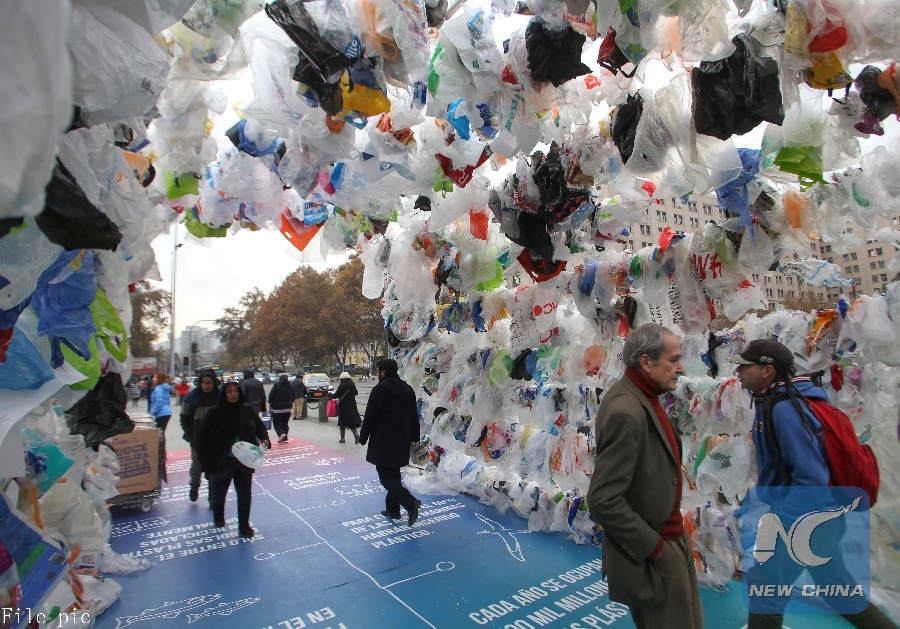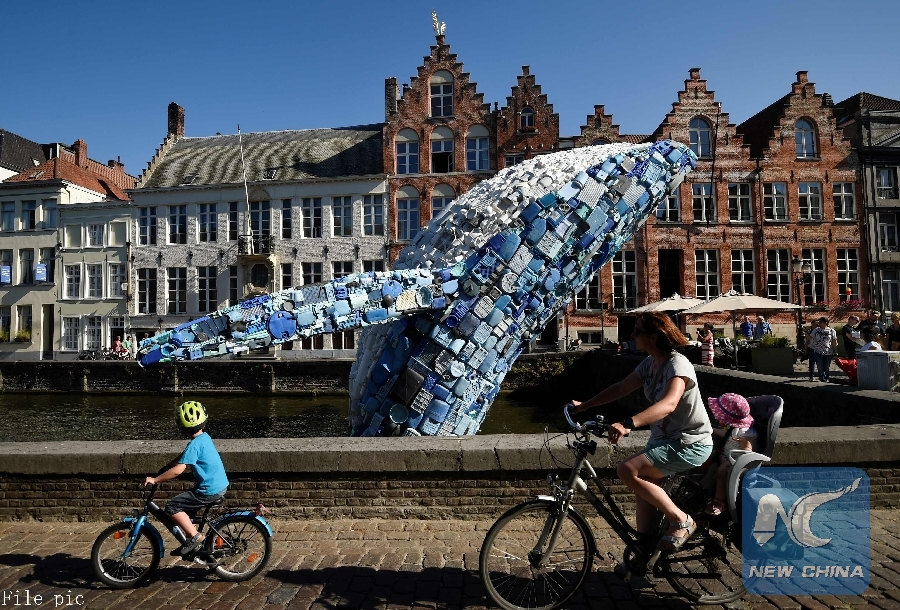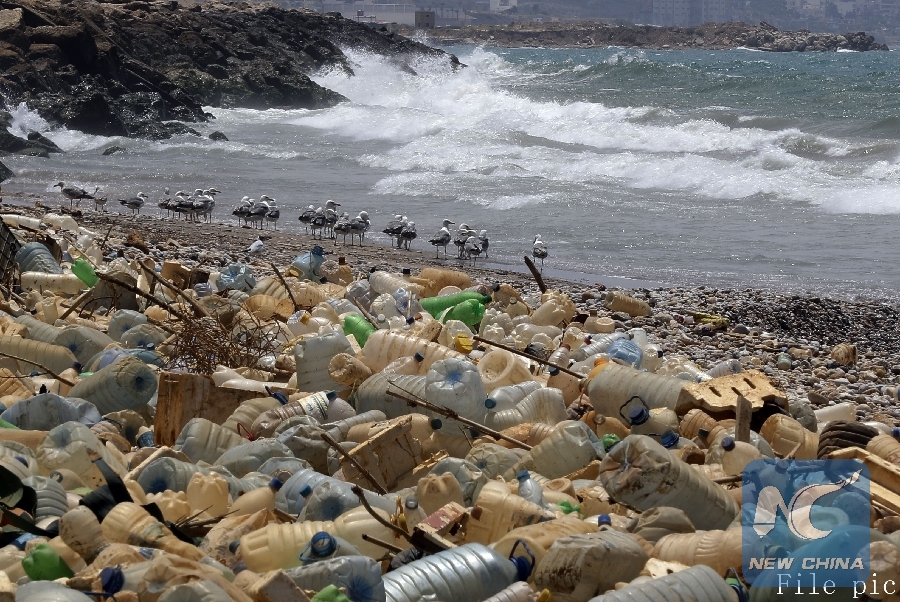
People walk through a tunnel made out of plastic bags in front of La Moneda presidential palace in Santiago, during the World Environment Day on June 5, 2018. (AFP photo)
by Burak Akinci
ANKARA, Nov. 24 (Xinhua) -- Turkey is ready for a transition in 2019 from banning single-use-plastic to reusable and paper bags in order to catch up with global efforts to reduce plastic pollution.
The ruling Justice and Development party (AKP) submitted a draft law recently to parliament, banning free plastic bags at supermarkets and grocery stores, a widespread practice that has taken its toll on Turkey's environment.
The regulation is planned to be effective as of January 1, 2019.

People ride past a 12-metre installation depicting a whale, made up of five tons of plastic waste pulled out of the Pacific Ocean, displayed in Brugges, on July 14, 2018 for the 2018 Bruges Triennial. (AFP photo)
Plastic bags will be charged 0.25 Turkish lira (0.045 U.S. dollars), said Environment and Urbanization Minister, Murat Kurum, in an interview to the state-run Anadolu Agency.
The average usage of plastic bag is 440 per person in Turkey per year, which is remarkably higher than numbers in environmentally progressive European nations, where the rate stands between 15 and 25, he said.
"By charging the plastic bags, we want to reduce the number from 440 to 90 in 2019 while we aim to reduce this number to 40 in 2025," said the minister.
Some big supermarket chains in Turkey, a candidate nation to European Union membership for more than a decade, have already switched to biodegradable plastic, but a majority of shops and small markets still use plastic bags to promote their brands.
Turks use 30 to 35 billions of plastic bags each year, which end up mostly in sea water, causing a major pollution in a country.

File photo: In this file photo taken on July 19, 2018, Seagulls search for food near a sewage discharge area next to piles of plastic bottles and gallons washed away by the water on the seaside of Ouzai, south of Beirut. (AFP photo)
The draft law, supported by most political parties, has been hailed by environmentalists as a move towards aligning Turkey with European standards.
But it caused some frictions between customers and shops, where checkout assistants only give one bag per customer in Ankara as a preparatory exercise before explaining the new law to shoppers.
"Some customers are really not happy with this. They got a bit angry when we explained them the new law and the fact that we would not provide free plastic bags in the new year and they would have to comply with the rules," said Melda, a young female cashier in a supermarket in the residential Yildiz neighborhood.
"What kind of bag shall I get when I shop?" asked a confused customer to Melda, complaining that "I understand that we have to protect the environment, while one silly bag won't change anything."
An elderly lady stepped into the conversation and said for her part that "our earth has already greatly suffered of pollution caused by humans. If it continues this way, we won't have a world to live on."
Overall, most Turkish people are favorable to the new scheme which is a part of Turkey's fight against waste, with a few proposed the changes to take place soon.
In line with this, local administrations will be given more detailed tasks to supervise efforts for "zero waste."
Municipalities, bus stations, shopping malls, workplaces, public institutions, hotels, hospitals and schools are required to adapt next year to the "zero waste" scheme, aiming to save everything from paper to discarded metals for future use or recycling.
Turkey's road to reduce plastic waste has not been easy, but over the last couple of years, the recycling sector has grown to the extend that half of the plastic bottles used every year in the country are now being recycled, according to official data.
Turkey is among the 20 countries responsible for the bad plastic management in the world, Turkish Marine Research Foundation head, Bayram Ozturk, said earlier this year.
"The decomposition of plastics in sea water takes years. And these decomposed chemicals end up in the human body with the food chain," the expert told daily Hurriyet.

